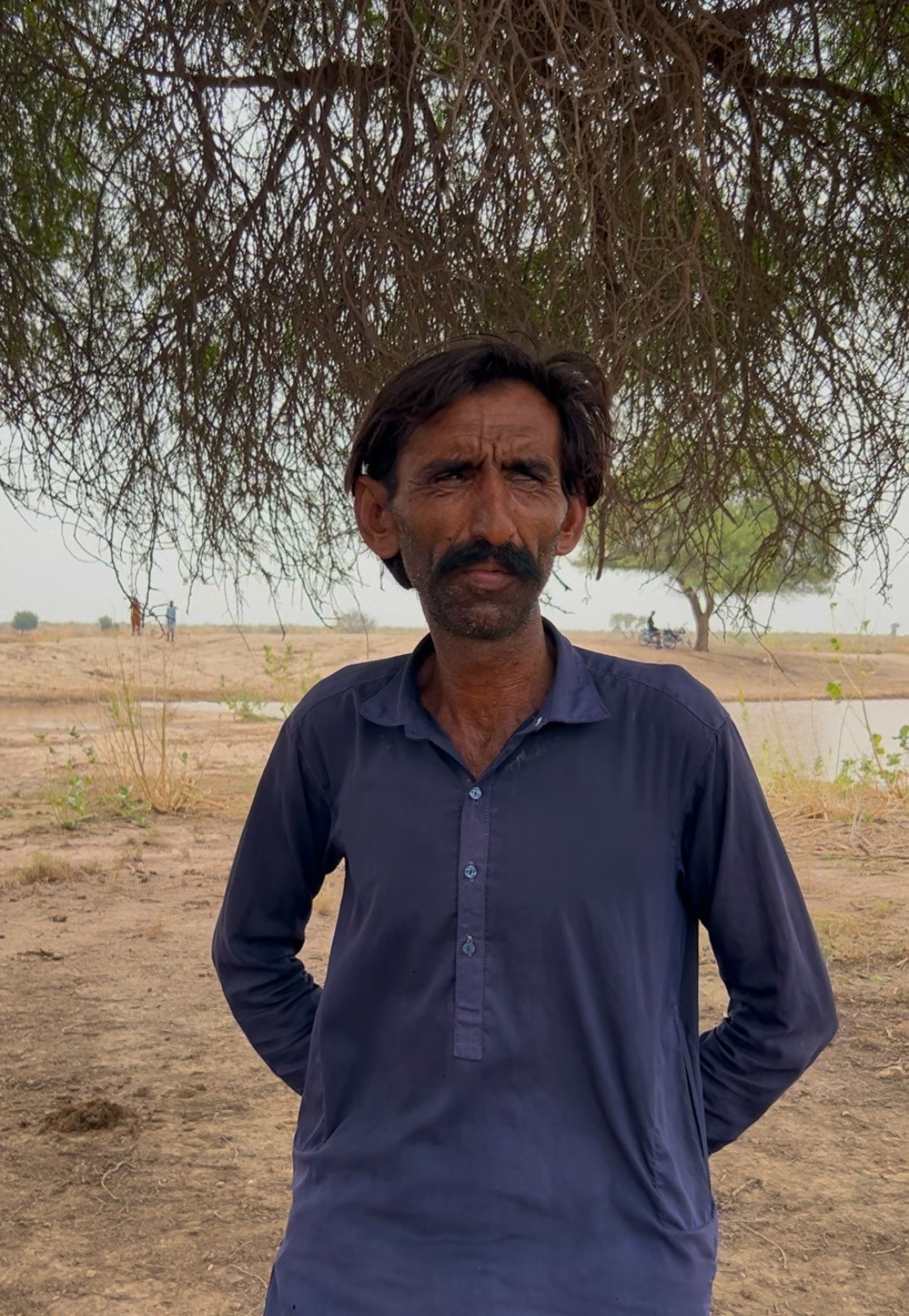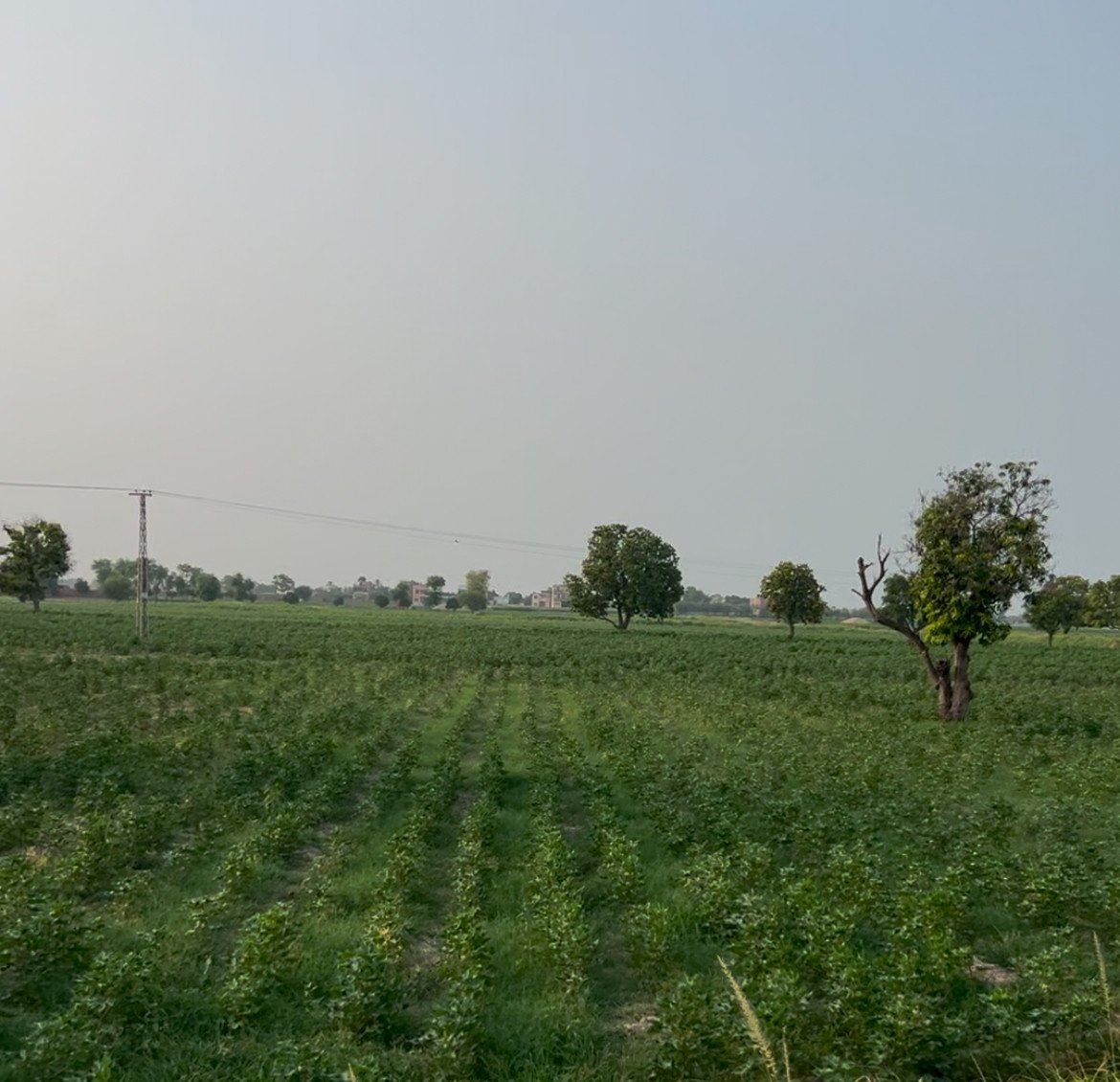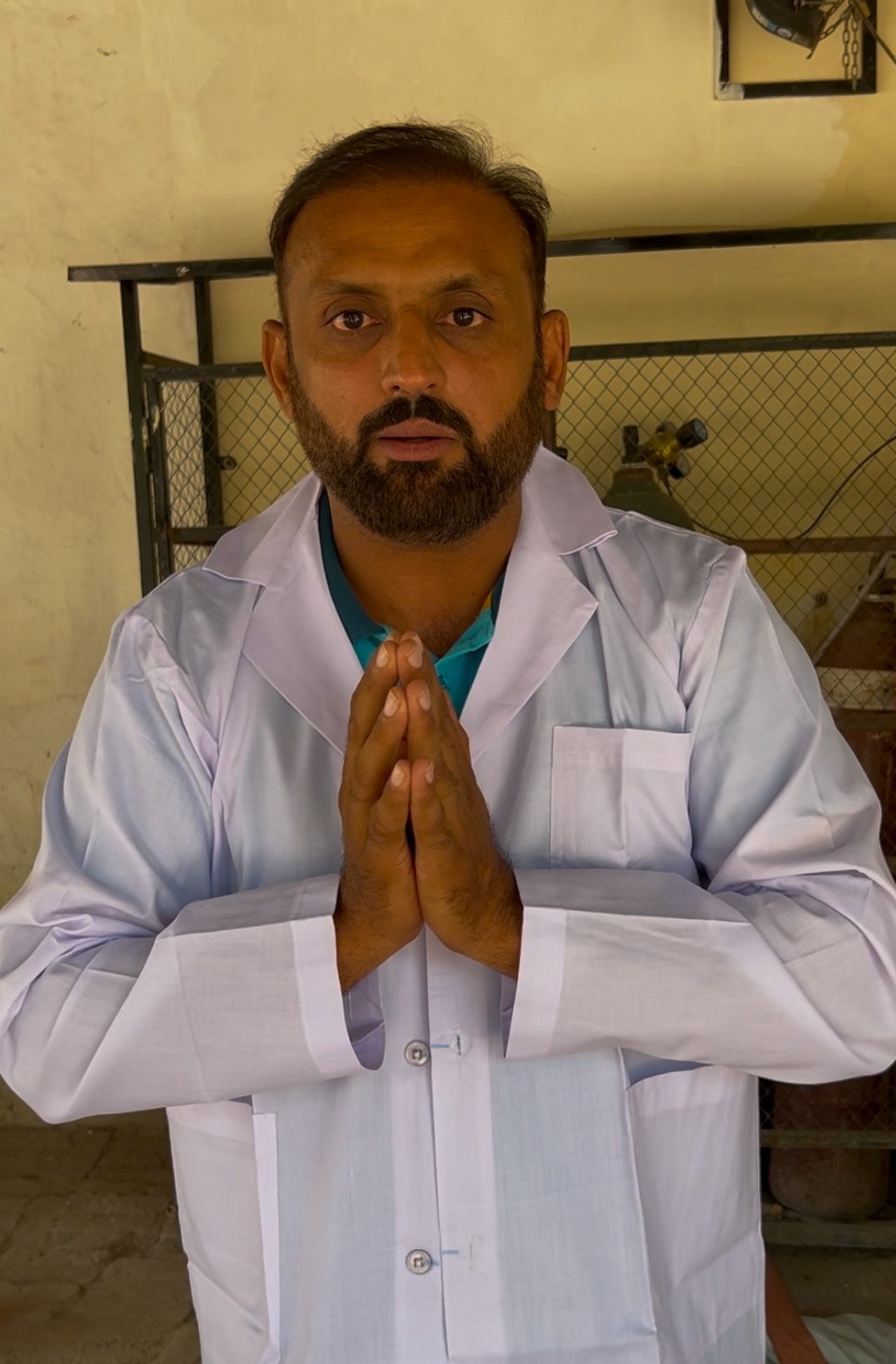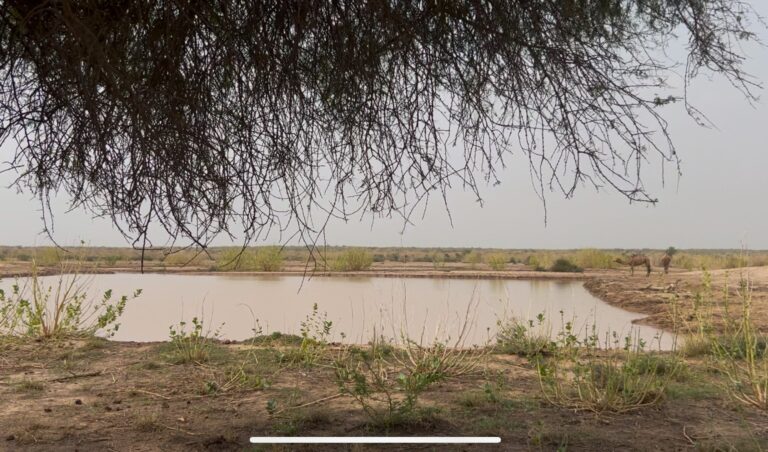PUBLISHED
July 27, 2025
“The cattle and humans drink the same water,” says Mujahid Kaleem, a wildlife officer stationed in a stretch of the Cholistan desert near Rahim Yar Khan. He’s referring to the tobas — traditional rainwater reservoirs that are a lifeline in this arid region.
Kaleem gestures toward a nearby toba, where a herd of goats and buffaloes are drinking. Moments later, two young children approach the same spot and fill a bucket to take home. When asked whether the water is boiled before drinking, the reply is terse: “No.”
Waryam Maher, a resident of Cholistan, says that despite recent government initiatives to lay clean water pipelines, the efforts have largely fallen short. “If it rains, we have water to drink. If it doesn’t, there’s none,” he says, adding that they rely on outside help to access clean water.
For Maher and others like him, the message is clear: they and their families are deprived of basic necessities not by accident, but because they hold no value for those in power. There were just unlucky to be born in the desert, where there’s nothing to profit from, so no one cares.
The people of Cholistan may face the harshest neglect in South Punjab, but the outlook isn’t much better for farmers in Rahim Yar Khan. Syed Mahmood ul Haq Bukhari, Chairman of the All Pakistan Farmers’ Foundation, is visibly frustrated with the state of agriculture in Punjab.
“There has been severe damage to mangoes due to the extreme heat,” he says. “Other crops, like cotton, have also suffered because of climate change.”
If the public cannot rally around the plight of farmers, Bukhari argues, perhaps they’ll take notice when mangoes begin disappearing from the markets. If losing mangoes or cotton may not seem life-threatening, when wheat and rice begin to vanish, the consequences could be catastrophic.

“The ‘Bhel’ crop once produced 15 million units. That number has now fallen to four million because of climate change,” Bukhari shares. He warns that “there is no bigger issue in the world today than the changing climate,” but is quick to point out that poor governance is what makes its impact even deadlier for Pakistan’s farmers.
“The government has no control over sugarcane crops. As a result, sugarcane farmers are completely exploited,” he adds. “The sugar mill mafia sets prices as they please.”
For Bukhari, poor governance compounds the devastation of climate change. He argues that countries like Pakistan must move beyond the habit of simply asking for international aid. “We need to fix our corrupt systems first if we want to deal with the consequences of climate change and to deserve any aid,” he says. He points to a recent admission in parliament: “the finance minister has openly stated that our five major crops are in decline.”
What troubles him even more is the way this crisis is being framed. “It amazes me that in my country, securing a large IMF loan is treated as good news,” he says bitterly. “The government feeds the bureaucracy with that money and in turn, the bureaucracy crushes the people.” It’s a grievance echoed by many in Pakistan.

Water mismanagement
Poor planning in Pakistan isn’t limited to economic policy or agricultural regulation. It extends deeply into irrigation infrastructure. In May, a river breach in a canal near Rahim Yar Khan led to the flooding of 50,000 acres of farmland, according to a report published earlier by The Express Tribune.
This isn’t an isolated incident. An in-depth Vox explainer highlights how Pakistan’s irrigation system, inherited and expanded from colonial-era designs, is inherently vulnerable to flooding. Traditionally, floodwaters would have drained naturally back into rivers through existing channels. But the British-era engineering — continued uncritically by Pakistan — introduced embankments that trap water at the brink.
These reinforced structures may prevent minor flooding, but when a breach occurs — as seen during the devastating floods three years ago — the water collects in low-lying areas and has no natural route to flow back. The result is prolonged devastation, stagnant water, and ruined farmland.
Inefficient resource allocation
It is no secret now. Pakistan’s population boom is out of control. Our population is growing at an alarming rate, estimated to cross 400 million in the span of a couple decades. Resources, at the same time, remain scarce.
Increasing temperatures and unpredictable weather patterns will make farming near impossible, significantly damaging a huge source of income for much of the population, and triggering food insecurity. Arif Ghufoor, a researcher at the Punjab government’s Water and Soil Research Laboratory in Rahim Yar Khan, says that overuse of water and inefficient farming practices are two huge sources of waste.
“[To this end] our department has launched an application called “Khad Hisaab”(fertiliser accounting), to help farmers calculate their fertiliser requirements,” he shares.
According to Ghufoor, farmers will often ‘blindly’ use large quantities of fertiliser. To tackle that challenge, the app helps farmers calculate the exact amount of fertiliser and water needed for specific crops based on soil conditions, crop type and their budget.
The issue of over-fertilisation is alarming in itself. According to the Institute for Environmental Research and Education, excessive use of fertilisers can degrade soil quality, reduce biodiversity and release nitrous oxide, a dangerous greenhouse gas.
It also contributes to widespread water pollution. One of the most damaging outcomes is ‘eutrophication’, a process where excess nutrients enter water bodies, depleting oxygen levels and creating ‘dead zones’ where aquatic life cannot survive.
But according to Ghufoor, one of the biggest hurdles to reform isn’t just policy, it’s mindset. Despite efforts like the Khad Hisaab app, very few farmers in South Punjab are actually using it. “There’s a culture of arrogance among some farmers,” he says. “Many believe they know best and don’t need scientific advice.”
He shares a personal example: some of the farmers in the area have known him since he was a child. They occasionally visit his lab, not to test their soil or water, but to seek help accessing government schemes like the Punjab chief minister’s Kissan Card.
“They’ll come for bureaucratic help, but never to ask for guidance on improving their farming,” he says. “In their eyes, I’m still the kid who used to play in their laps, so what could I possibly know?”

Arresting population growth
One of the most effective ways for Pakistan to confront the twin crises of climate change and resource scarcity is by ensuring reproductive rights for women. Within South Asia, Bangladesh provides a compelling example of how this can work.
When the two wings of the country separated, East Pakistan had a larger population than the West well into the decade. But Bangladesh’s leadership recognised early on that population control was essential for economic progress. Through a combination of door-to-door outreach and mass media campaigns, they actively promoted smaller family sizes, making the case that fewer children meant greater prosperity.
According to World Bank data, Bangladesh’s fertility rate fell from 6.95 births per woman in 1970 to 2.06 by 2017. This demographic shift has played a major role in reducing poverty and improving economic outcomes. Today, Bangladesh is more economically stable and developed than Pakistan.
A key reason such policies have not been effectively pursued in Pakistan is the fear of backlash from religious extremists, who vehemently oppose reproductive education and family planning.
What’s striking is that Bangladesh, too, is a Muslim-majority country yet it chose to prioritise national wellbeing over appeasing hardline voices.
There is no possible pathway to solving these fundamental problems without prioritising scientific education in rural areas, promoting population control through mass media and door-to-door campaigning, and building more resilient infrastructure in the face of a deteriorating climate. Smartphone applications, and tweets about climate change by government officials, will not do the trick.
The root problems—cultural arrogance and scientific illiteracy—continue to undermine well-intentioned interventions. Without a respect for the scientific method, even the best-designed tools are rendered ineffective.
There is one major problem here: cultural arrogance, and scientific illiteracy. Although apps of this kind sound good in principle, they are wasted if there is little scientific literacy and a respect for the scientific method. As for the Cholistanis, there seems to be no long-term solution other than migration. Droughts will only worsen with time, killing their animals before killing them, and the chronic lack of compassion within the elites may not change without a spiritual reformation.
Zain Haq is a freelance contributor
All facts and information are the sole responsibility of the author

